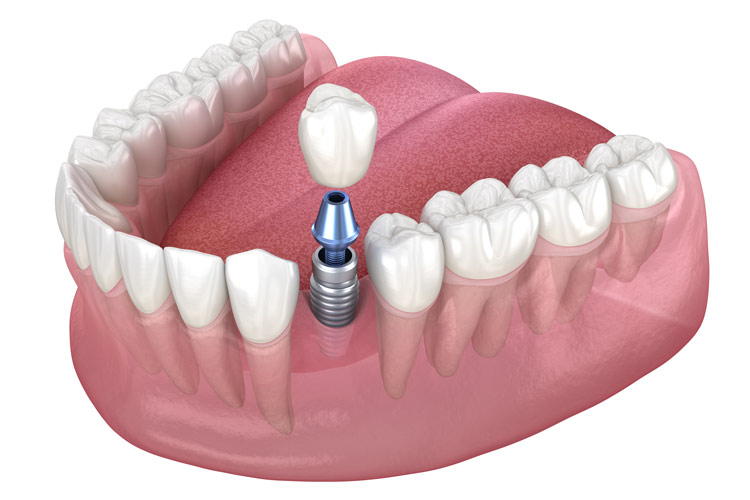Simply put, dental implants are metal posts that function as tooth root replacement. Dental implants also work by providing a robust tooth for permanent tooth replacement. Amazingly, the dental implant procedure has a very high success rate. However, while the percentage is very slim, there is still a chance for dental implant failure to occur.
Common Factors that Can Affect Dental Implant Success
Many factors can affect the success of your dental implants. Some of the most common factors include:
Inexperienced dental professional
Undeniably, not all dental professionals have been created equal. That said, there is a much higher chance of dental implant failure when you work with an inexperienced surgeon. A highly skilled and experienced surgeon will know what to do to help ensure the success of the dental implant procedure.
Not only that, working with a competent dental professional can also help ensure iatrogenic trauma is avoided. Iatrogenic trauma is a periodontal tissue injury caused by dental activity. Understandably, it would be wise to pick a dental professional that has done the procedure countless times.
It is also recommended that you pick someone who would be willing to patiently go through the treatment and recovery plan with you. To help ensure you work with the best dental professional, you can also ask them the following important questions:
- What is their success rate
- The number of years they have worked as a dental professional/surgeon
- The number of dental implant procedure they perform yearly
- What they attribute the success of the dental implant procedure to
Gum disease
One of the important factors that can determine if you are qualified to be a dental implant candidate or not is healthy gums. You won’t be considered an ideal candidate for the dental implant procedure if you have an active gum disease. In most cases, the condition has to be treated first.
Gum disease is an infection that can cause damage to the gums and the jawbone. Left unattended, infection can set in and can affect the result and success of your dental implant treatment. In similar cases, it would be ideal to talk to your dentist first so you will be given the best guidance for your case.
Medical conditions
Those that have been diagnosed with an autoimmune disease or condition like rheumatoid arthritis or diabetes can heal slower compared to their healthier counterparts. Slow healing can also slow down (or in some cases, hinder) osseointegration or the fusing of the implant with the jawbone.
The use of some medications can also result in dental implant failure. In line with this, it is recommended that you talk to your dentist about any medications, supplements, or over-the-counter prescriptions you may be taking. Your dentist would be able to give proper advice if you need to stop taking the medications before the procedure.
A study done in 2016 revealed that some heartburn medications can minimize new bone growth. It was also discovered that this can affect the osseointegration process. Another study done in 2016 also reported similar results among those individuals who are taking antidepressant medications.
Insufficient jawbone
Another factor that can affect the success of the dental implant procedure is if you have enough bone to support the dental implant. If you no longer have enough bone, it would be impossible for the osseointegration process to become successful.
Bone loss can be attributed to many factors. The condition develops when the density of the bone decreases. Bones can also become fragile and brittle so there is also a greater risk for fractures to occur. Those with severe gum disease are also likely to experience bone deterioration.



